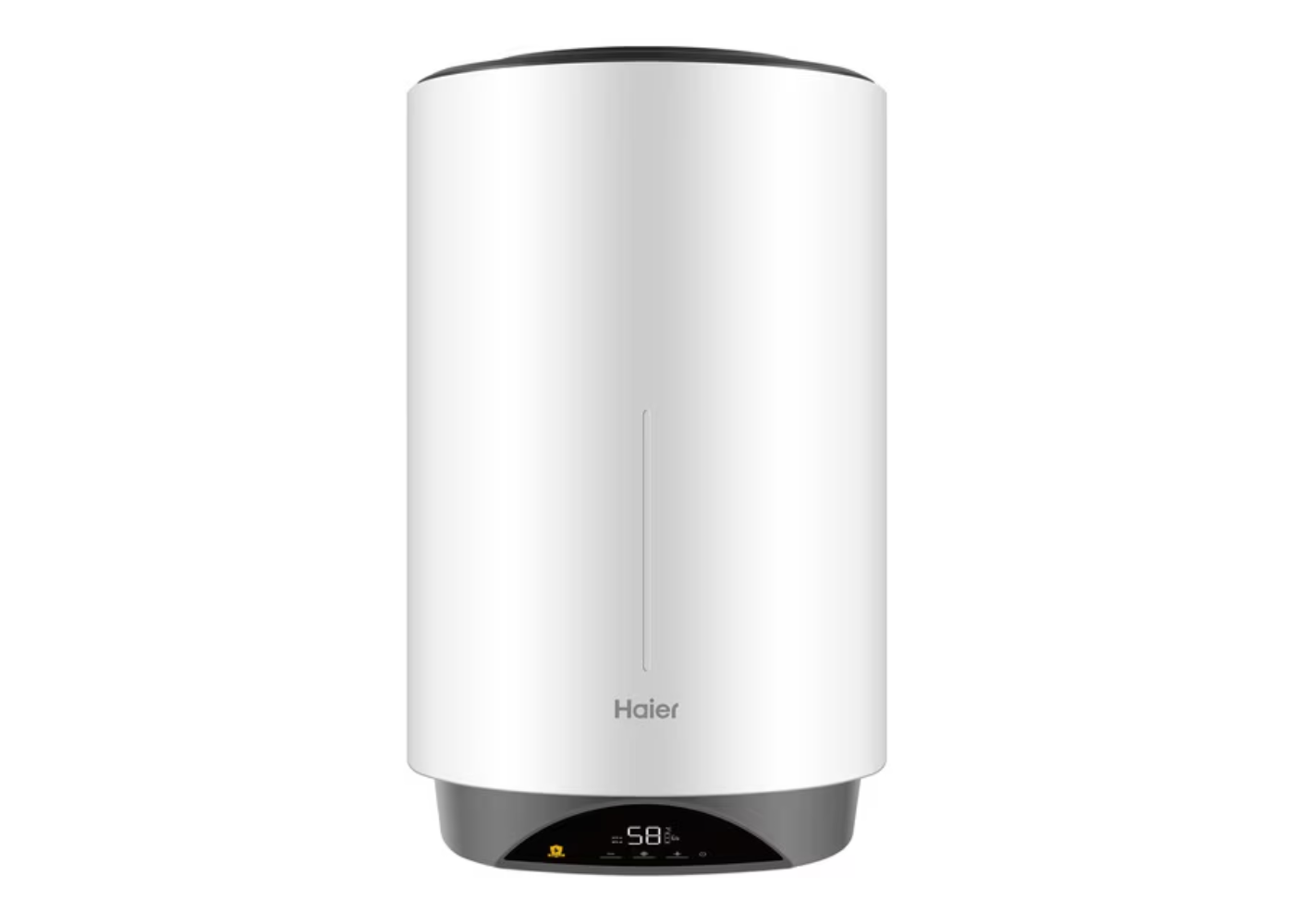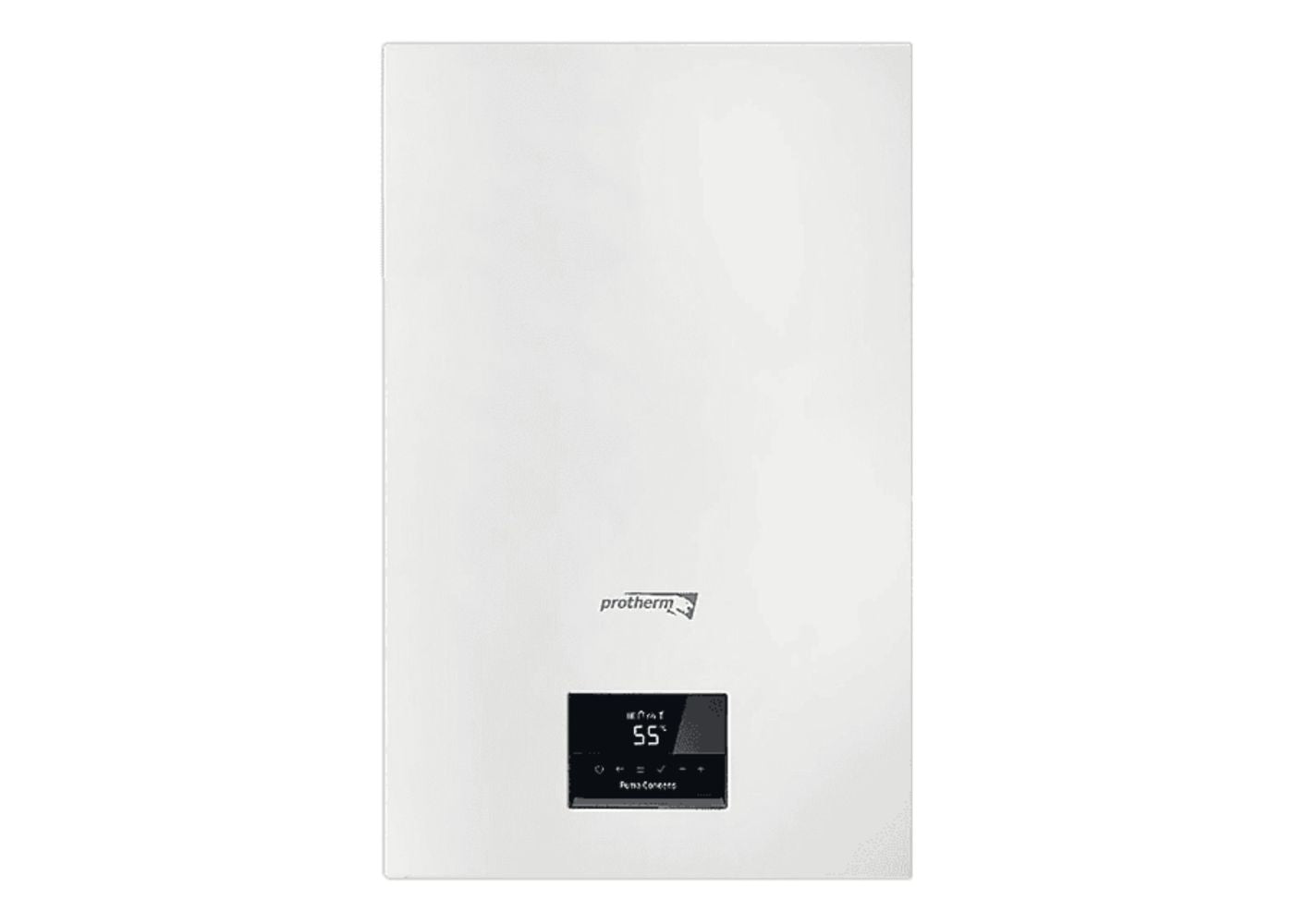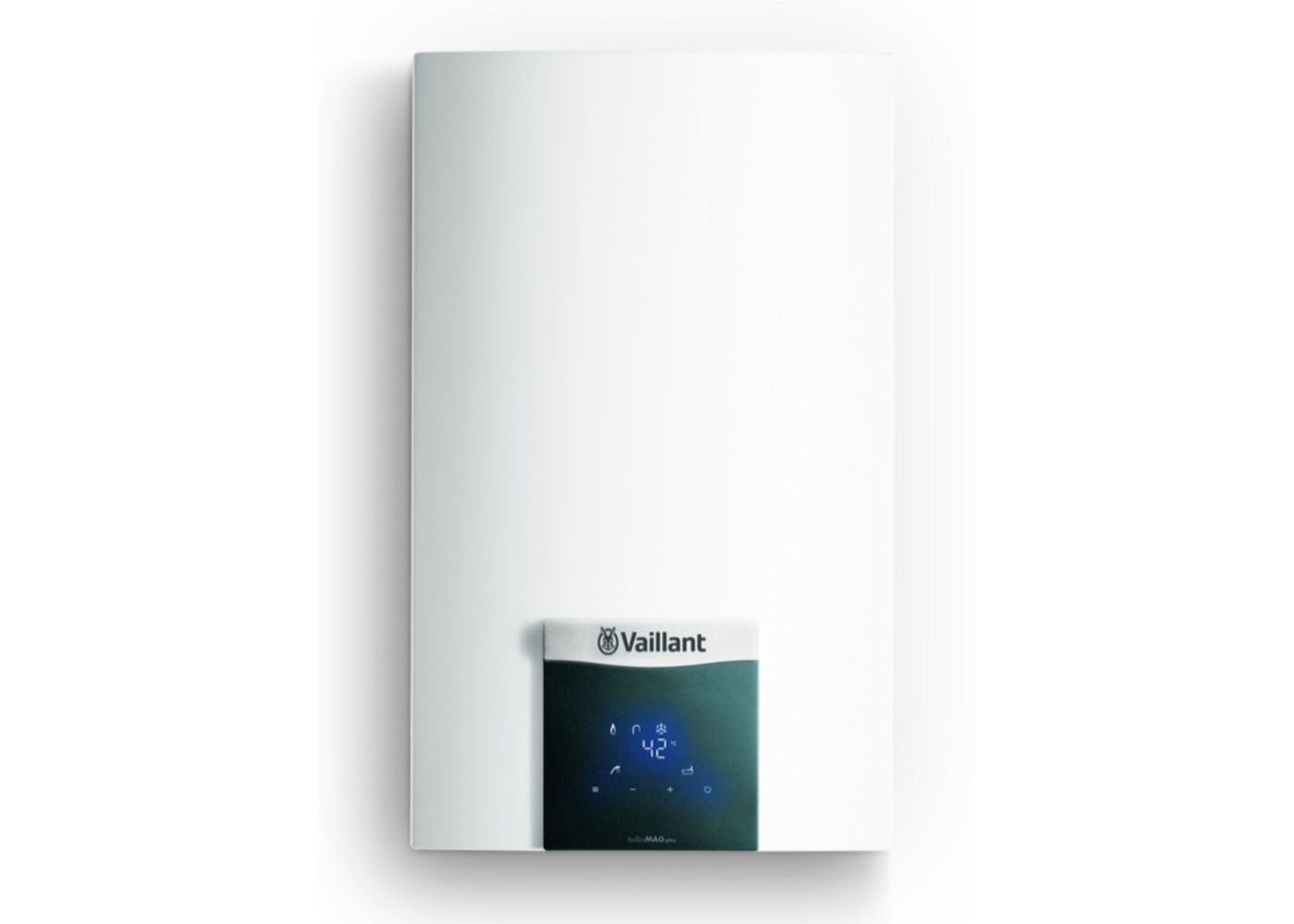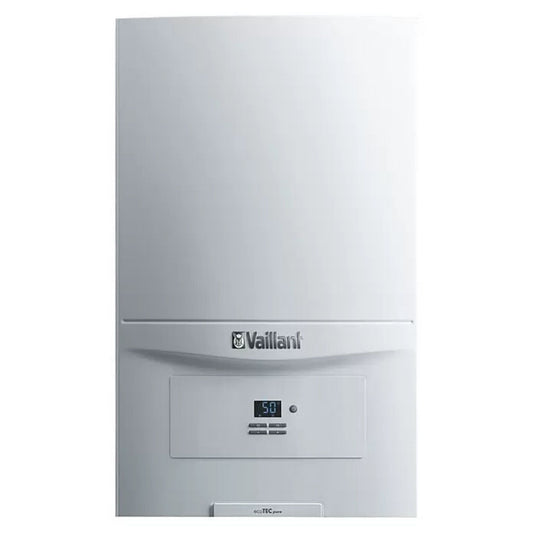
Electric Water Heater
An electric water heater is a storage tank that heats water using electric resistances. It functions as a hot water accumulator, maintaining the desired temperature until needed.

Gas Water Heater
A gas water heater heats water instantly without storing it, using natural gas, butane, or propane. It only activates when a hot water tap is opened.

Boiler
A boiler is a more complete system, providing both domestic hot water (DHW) and home heating through radiators or underfloor heating. It typically runs on gas or diesel.
-
Electric Water Heater Features
- Runs on electricity, No gas connection required.
- Storage capacity, Uses a tank to store hot water.
- Thermal insulation, Keeps water hot, but once emptied, reheating takes time.
- Easy installation, No need for a gas connection.
--------------------------------------------------------------------
✅ Easy installation. Suitable for any home with an electrical connection.
✅ Perfect for gas-free areas. No emissions or special ventilation needed.
✅ Lower maintenance. Requires less upkeep than gas water heaters and boilers.
❌ Limited hot water supply. Once the tank is empty, reheating takes time.
❌ Higher electricity consumption. Compared to gas water heaters.
❌ Space requirement. Needs adequate space for the storage tank.
-
Gas Water Heater Features
- Works with gas (natural, butane, or propane).
- No storage: heats water instantly when needed.
- There are atmospheric and sealed models (sealed models are safer and more recommended).
- Requires gas installation and smoke outlet.
---------------------------------------------------------------------
✅ Unlimited hot water, as it heats instantly and doesn’t rely on a tank.
✅ More efficient than an electric water heater, as it only consumes energy when in use.
✅ Lower operating cost if gas is cheaper than electricity.
❌ Requires gas installation and, in some cases, a smoke outlet.
❌ Temperature fluctuations may occur if multiple taps are used simultaneously.
❌ Maintenance required: Burners can accumulate limescale over time. -
Boiler Features
- Dual function: domestic hot water and heating.
- Available in condensing, gas, oil, and biomass models.
- Condensing boilers are the most efficient and recommended today.
- Higher initial investment but greater long-term efficiency.
---------------------------------------------------------------------
✅ Ideal for homes with radiator heating.
✅ Higher energy efficiency with condensing models.
✅ Long-term savings on energy consumption.
✅ Can be combined with renewable energy sources (solar thermal).
❌ More expensive than a water heater or gas heater.
❌ More complex installation, requiring gas connection and smoke outlet.
❌ Requires maintenance to ensure efficiency.
What Should You Choose?
When to Choose an Electric Water Heater
🔹 If you don’t have access to gas in your home.
🔹 If hot water consumption is moderate and you can adjust to the heater’s capacity.
🔹 If you're looking for a safe and easy-to-install option.
When to Choose a Gas Water Heater
🔹 If you have access to gas and want an efficient option.
🔹 If hot water consumption is high or there are multiple people in the house.
🔹 If you prefer instant hot water without relying on a tank.
When to Choose a Boiler
🔹 If you need both hot water and home heating.
🔹 If consumption is high and you want maximum efficiency.
🔹 If you have radiators or underfloor heating and want to use a single system for everything.
Featured Collection
-
Vaillant ECOTEC PLUS VMW CS/1-5GN Boiler
Regular price From 2.221,72€Regular priceUnit price / per -
Thermor Premium Ceramics Pro Thermo Water Heater
Regular price From 222,79€Regular priceUnit price / per250,00€Sale price From 222,79€Sale -
PUMA PROTHERM 18-24 | 24-28 Boiler
Regular price From 1.002,02€Regular priceUnit price / per1.100,00€Sale price From 1.002,02€Sale -
Thermor Concept Vertical Thermo Water Heater
Regular price From 166,46€Regular priceUnit price / per -
FUJI-HP H150 Thermosiphon
Regular price 1.451,56€Regular priceUnit price / per1.530,00€Sale price 1.451,56€Sale -
JUNKERS Hydronext 5700 | 5600 S Water Heater
Regular price From 502,75€Regular priceUnit price / per549,00€Sale price From 502,75€Sale -
FUJI-HP H100 Thermosiphon
Regular price 877,68€Regular priceUnit price / per967,98€Sale price 877,68€Sale -
Vaillant Turbomag PLUS Water Heater
Regular price From 518,67€Regular priceUnit price / per -
Thermor Top Estanco Select Heater
Regular price From 419,25€Regular priceUnit price / per -
Thermor Iono Atmos Select Water Heater
Regular price From 297,56€Regular priceUnit price / per -
Thermor Premium Ceramics Slim Thermo Water Heater
Regular price From 245,43€Regular priceUnit price / per260,00€Sale price From 245,43€Sale -
FUJI-HP H300 Thermosiphon
Regular price 1.957,51€Regular priceUnit price / per2.039,98€Sale price 1.957,51€Sale -
Vaillant Turbomag PRO Water Heater
Regular price From 484,30€Regular priceUnit price / per -
Thermor Concept Horizontal Thermo Water Heater
Regular price From 204,55€Regular priceUnit price / per -
TESY Antical Thermo Water Heater
Regular price From 204,28€Regular priceUnit price / per -
Nofer SB Thermo Water Heater - Protected Heating Element
Regular price From 141,55€Regular priceUnit price / per -
Nofer N Thermo Water Heater
Regular price From 123,81€Regular priceUnit price / per150,00€Sale price From 123,81€Sale -
FUJI-IS H120 Thermosiphon
Regular price 820,79€Regular priceUnit price / per1.019,98€Sale price 820,79€Sale -
Haier ES V-VA3 Thermo Water Heater
Regular price From 115,48€Regular priceUnit price / per -
Aparici SIE Electric Thermo Water Heater
Regular price From 216,74€Regular priceUnit price / per -
FUJI-IS H200 Thermosiphon
Regular price 1.015,89€Regular priceUnit price / per -
Vaillant ECOTEC PURE VMW 236 - 286 7-2 Boiler
Regular price From 1.488,61€Regular priceUnit price / per1.500,00€Sale price From 1.488,61€Sale -
Junkers Hydro 4200 Water Heater
Regular price From 354,77€Regular priceUnit price / per400,00€Sale price From 354,77€Sale -
Hermann Micraplus Condens 25kW | 30kW GN Boiler
Regular price From 1.084,47€Regular priceUnit price / per -
FUJI-IS H300 Thermosiphon
Regular price 1.287,28€Regular priceUnit price / per1.326,00€Sale price 1.287,28€Sale























